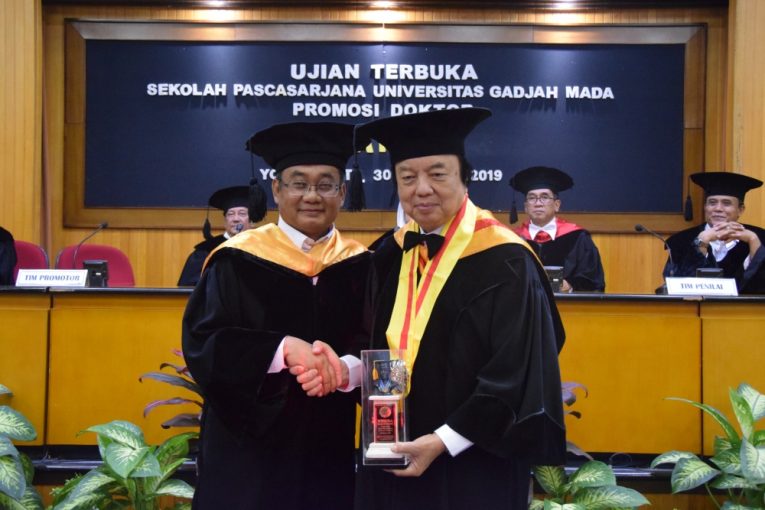



Yogyakarta, Graduate School (SPs) of Gadjah Mada University held an open exam for doctoral promotion for Tahir from the Leadership and Policy Innovation Program, Friday (30/8/2019).
On this occasion, Tahir presented the results of his dissertation research entitled Economic Studies of New Institutions and Leadership (Case Study of Banking Saving Policy during the 1997/1998 Monetary Crisis). According to Tahir, the root of the problem of banking rescue policy through BLBI (Bank Indonesia Liquidity Assistance) is a weakness in economic institutions that creates ineffective banking rescue policies. The banking rescue policy during the 1997/1998 financial crisis attracted Tahir's attention to study from the theoretical perspective of the New Institutional Economics (NIE). In this study, Tahir used a case study approach with informants consisting of banking actors, former law enforcers, and former central bank officials.
The findings of this research are that, (1) informal institutions have a negative impact on the effectiveness of formal institutions; (2) the institutional environment of the banking sector does not provide a strong system of authority to institutions holding monetary and banking authorities, thereby creating moral hazard; (3) poor governance has resulted in unclear contractual relationships between the principle and agent and increased transaction costs; (4) the intensive structure of resource allocation does not encourage bank compliance with the applied formal regulations; and (5) government and business leadership which is full of moral hazard has caused banking institutions and bank rescue policies to not work effectively.
The Chariman Mayapada Group provides several implications for banking rescue policies in adjusting to global market dynamics in the form of (1) strengthening the institutional system of central bank authority through central bank independence policies and regulation of codes of ethics and internal control systems that guarantee relations between banking actors with the principles of professionalism and accountability; (2) tightening the requirements for establishing banks and enforcing a regular supervisory system to ensure bank management compliance with banking regulations; and (3) development of a banking management system based on the principles of Good Corporate Governance so that bank management is based on sound banking mechanisms and rejects any actions and practices that have the potential to disrupt banking health.
The results of the dissertation were presented very well by Tahir, so that he graduated as a doctor with Cum Laude honors. (SPs / Azrina)
